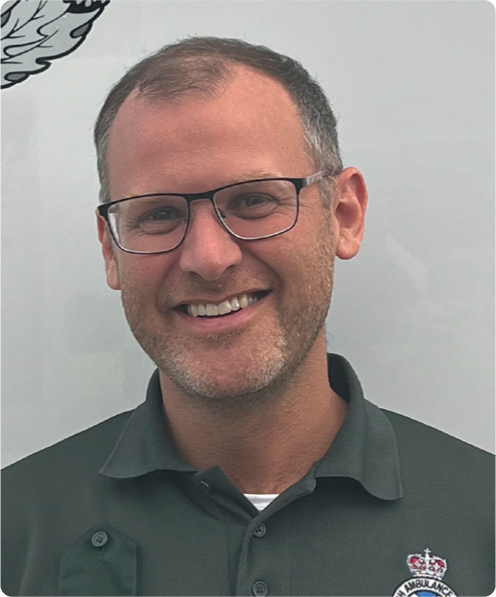
When I saw the advert for the College of Paramedics' Regional Conference in Aberdeen, I thought this would be a great opportunity to attend a continuing professional development (CPD) event and meet some like-minded people. Fast forward a few weeks, and when that 4:45 am alarm went off, it did cross my mind to roll over and go back to sleep. Thankfully, I didn't.
There was a varied agenda from the exciting world of major trauma to the polar opposite discussion of mental capacity in patients with suicidal ideations. The stand out session for me was on leadership. Thinking about the College of Paramedics' Career Framework and the four pillars, a lot of emphasis is put on clinical practice on a daily basis, but education, research and leadership are equally important. I think it is important to think of ourselves as standing equally on all four pillars rather than choosing one and balancing it. This got me thinking about how I currently stand on the pillars and how newly qualified paramedics (NQPs) can be aligned to all pillars—not just the clinical one.
The pillar of clinical practice is the one most paramedics associate with. University teaches us the basic underpinning knowledge and we build on this every day, taking personal responsibility for our CPD and consolidation of learning into practice. Reflection is important to enable us to learn from certain cases, learn about the more obscure conditions, and stay relevant with current practice. This is vital for my own knowledge base and, in turn, helps me provide the best care to patients.
Turning toward the education pillar, I have a passion to keep learning and passing on my knowledge despite having finished formal education. I have recently had the privilege of being a practice educator for a university student and enjoyed opportunities to pass on some useful hints and tips that I was given as a student and talk through some of the more challenging pathophysiology of medical conditions to help my student understand what was going on in the body and what we could do about it.
The research pillar is probably the one I have least to do with in my current practice. I try to keep up to date on current research by reading journal articles and social media threads. University taught me all about research and critical analysis. How can I continue this in my day-to-day working life? It is easy to critique current practice, but taking the next step into researching these formally is not currently a position I have in the organisation. However, I think we all have a larger part to play in integrating research into future ways of working. How can we amalgamate this into daily operational life?
The mere mention of ‘leadership’ sends shivers down the spines of many. This is arguably the most important pillar. With good, solid leadership, teams thrive and will have a positive impact on patients. Leadership does not have to be formal with a name badge or job title to match—being the clinical lead (or senior clinician) on an ambulance is a form of leadership. Thinking back to the leadership session at the conference, one of the key messages was a re-iteration of the ‘Start with Why’ thought process from Simon Sinek. This helps understand our purpose and why we do things, rather than focusing on what we do and how we do it. We need to ask ‘why’ more often.
As NQPs, it is important to spend this time consolidating learning, but we need to keep pushing the profession ahead with all four pillars—not only the clinical aspect.

